If the United States should for some unforeseeable reason decide to get deeply involved in the outstanding border dispute between Zambia and Zimbabwe (Sindabezi Island is the contested territory), you can be sure that one word would be spoken with a smirk if it is spoken at all:
Escalation.
Meaning no disrespect to the proud peoples of those two proud nations, no one in Washington is very much worried about “escalation” with either one of them: The last weapon of mass destruction Zimbabwe successfully deployed was a printing press, running off so many banknotes and producing hyperinflation so comical and terrifying that a few elected officials in Washington are rumored to have actually bothered to seek out a desktop globe to learn where Zimbabwe is.
Russia is a third-rate power. So is Pakistan. North Korea is simultaneously a totalitarian state and psychotic state. But first-rate powers have to worry about these basket cases from time to time—because a third-rate nuclear weapon can still ruin your whole day.
Everybody seems to be about 99 and 44/100 percent sure that Iran does not have a nuclear weapon just yet but that it could produce one presently. If you are looking at Tehran from an old-fashioned, Machiavellian, game-theory point of view, then the only sensible thing to do is—well, woe unto the would-be atomic ayatollahs.
That doesn’t mean that either Israel or the United States is going to do what is necessary to drive a nice pointy pine stake through the heart of the Iranian nuclear weapons program. It only means that this would be the sensible thing to do at this moment. Washington has a way of resisting sensible things, and Israel sometimes does, too. John Maynard Keynes once observed that smart guys like him were more than capable of losing their well-starched shirts in the stock market because “markets can remain irrational longer than you can remain solvent,” and something similar holds true in foreign policy: Policymakers can remain irrational, or simply dilly-dally, longer than the window of opportunity remains open.
There are those in Donald Trump’s orbit who would excoriate his administration for getting the United States involved in another Middle Eastern war. But, of course, a state of war has existed between Iran and the United States since my bicycle had training wheels on it—it is just that the United States has not often roused itself to engage. I am reminded of the University of Texas football coach who was asked by a reporter about the Longhorns’ great rivalry with Texas Tech, in response to which question the coach blinked and cleared his throat and said it was the first he was hearing of it. Iran is a weak and backward country compared either to the Lesser Satan or the Great Satan, as the Iranian rhetoricians are pleased to call Israel and the United States, respectively. But, like Russia, Iran is big and powerful enough to be a pain in the ass as a regional malefactor—and it would, like Russia, enjoy a great deal more deference and a wider scope of practical action if it possessed a nuclear weapon.
Donald Trump, whose gift for self-contradiction is often demonstrated within a single illiterate clause of a single dotty sentence, to say nothing of a full speech, insisted on the 2024 campaign trail that he would be a peacemaker, that he would end the Russian war on Ukraine in a matter of hours (the Ukraine peace plan must be filed in the same folder as Trump’s health care program, three weeks away from completion for a decade now) and achieve peace throughout the Middle East, too.
But he also averred (as his press team has been reminding us) over and over that he believed Iran must be prevented from getting a nuclear weapon.
Trump is, famously, a man who likes to keep his options open. (Ask Mrs. Trump. Or Mrs. Trump. Or Mrs. Trump. Or the star of Porking with Pride 2.) Whether his dangling the promise of negotiations with Tehran was part of a strategic rope-a-dope to help Israel pull off its brilliant assault on Iran or whether it was something more like happy happenstance hardly matters, inasmuch as it was Trump doing what Trump is instinctually inclined to do: stalling. It was, from Trump’s perspective, a win-win: If the Iranians came to the table before the Israeli attack, then he could play peacemaker; if they came to the table after receiving a good beating, then he could extract more humiliating concessions than he might otherwise have dared; if the Israelis were wildly successful, then Washington’s hand would be strengthened by Iran’s degradation; if the Israelis met catastrophe, then Trump could—and surely would!—insist that things would have gone better if they had listened to him.
What seems most likely at this point is that the Israelis went into this hoping that the U.S. military, with its superior high-tech munitions, would come in at the last minute and deliver the coup de grâce to the fortified Iranian nuclear facility at Fordow, and possibly other sites—while developing its own alternative plan (probably a boots-on-the-ground operation) if obliged to go it alone. The Israelis have shown themselves to be nothing if not audacious in invention and disciplined in execution.
If Trump is true to character—and, tragically for him, it seems he is incapable of being otherwise—then his inclination will be to let someone else do the hard work and bear the risk. But an Israeli failure to truly gut the Iranian nuclear program would be a catastrophe for the United States, too—not to mention another failure on the part of the Trump administration to deliver on its promises. One way to look at the choice is between escalation and de-escalation; another way of looking at it is escalating the conflict with Iran before it has nuclear weapons or risk needing to reconsider the question after Tehran has acquired them. And, Trump being Trump, there is the matter of the timeline: He need not ensure that the Iranians be prevented from building a nuclear weapon, only that they be prevented from doing so while he is president.
It is a plutonium pickle.
What the United States has to show for all those trillions in military spending is a lot of Trump’s third-favorite thing (behind petty chiseling and receiving flattery), which is: options. We have a military that can, if necessary, move mountains.
That kind of technological superiority can lead to hubris:
Whatever happens, we have got
The Maxim gun, and they have not.
Hilaire Belloc wrote those lines when the British Empire was near its apex. He lived long enough to see it begin to fall apart.
We have an indecisive president—and it is decision time.
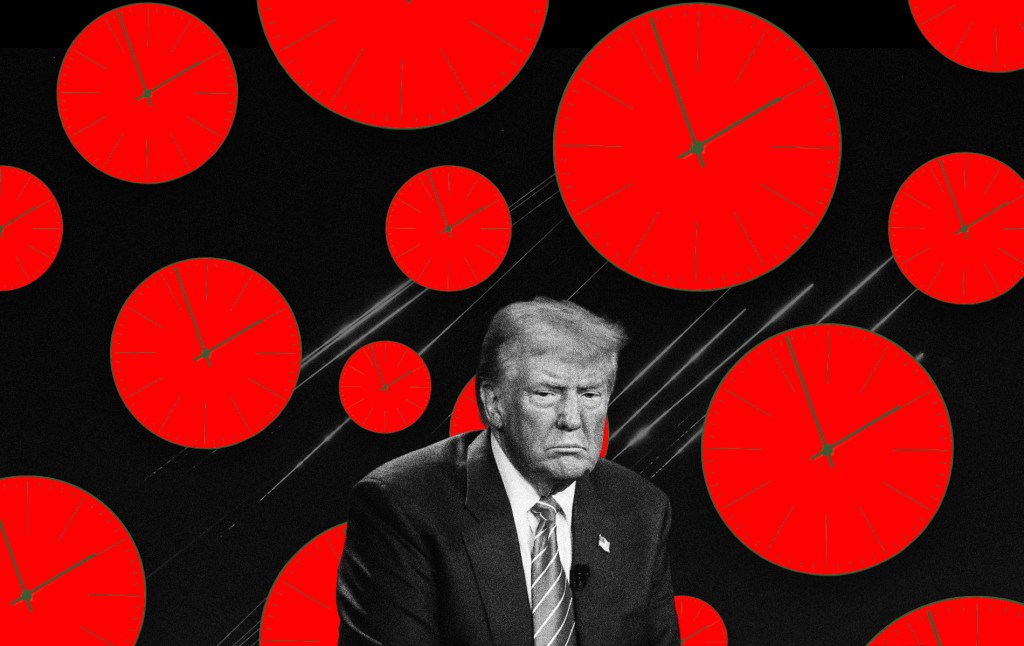

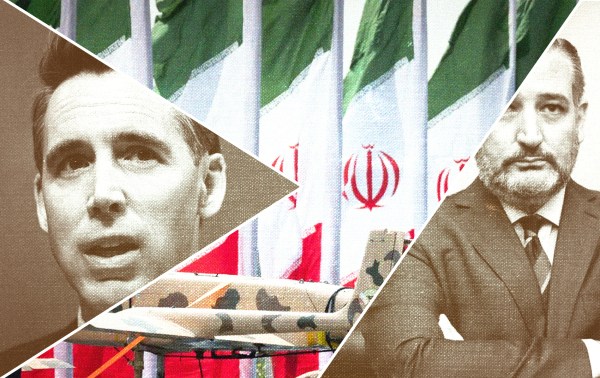
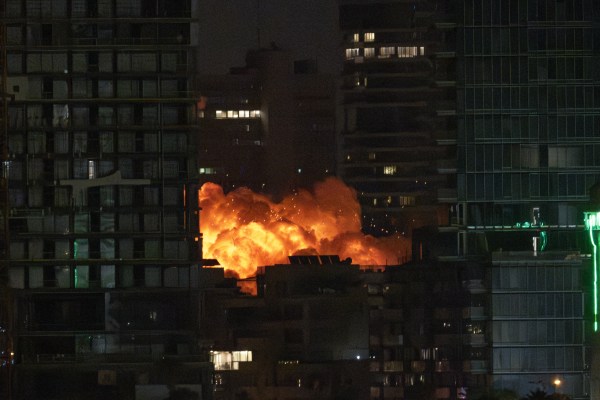
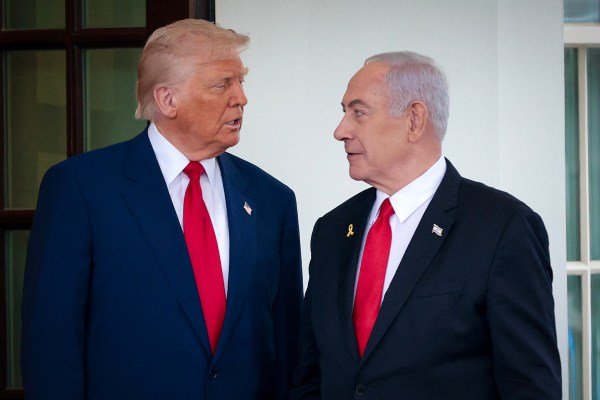



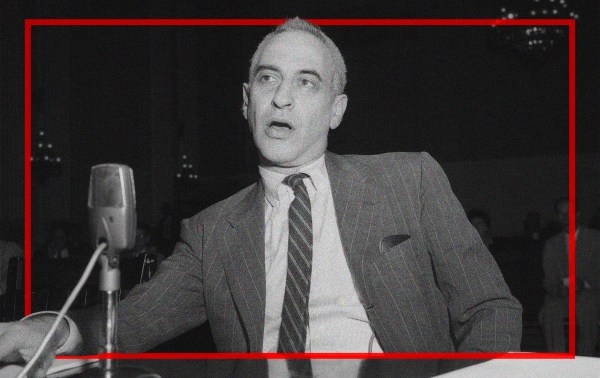

Please note that we at The Dispatch hold ourselves, our work, and our commenters to a higher standard than other places on the internet. We welcome comments that foster genuine debate or discussion—including comments critical of us or our work—but responses that include ad hominem attacks on fellow Dispatch members or are intended to stoke fear and anger may be moderated.
With your membership, you only have the ability to comment on The Morning Dispatch articles. Consider upgrading to join the conversation everywhere.